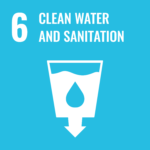- TOP
- COMPANY PROFILE
- To achieve a sustainable society
- Sustainability Financing
Sustainability Financing
Sustainability Financing
(Sustainability Share Subscription Rights and Sustainability Loan)
Daiki Axis voted at the August 21, 2020 Board of Directors’ meeting to issue second share subscription rights with third-party allotment and to conclude an agreement for a term loan with an executable term. Allotment of the share subscription rights to their subscriber, Morgan Stanley MUFG Securities Co., Ltd., was concluded on September 7, 2020.
The funds procured through this will be allocated to investments in plants/equipment and operating fees related to overseas expansion of water-related infrastructure business, which is part of our environmental equipment business, one of our principal business segments.
Overview of Sustainability Financing
Sustainability Share Subscription Rights
| Vote for issuance | August 21, 2020 |
|---|---|
| Allotment date | September 7, 2020 |
| Number of latent shares | 2.5 million |
| Expected total funds procured | ¥2.1 billion JPY |
| Initial exercise price | ¥875 JPY |
| Minimum exercise price | ¥805 JPY *Revisable to ¥725 by Daiki Axis Board of Directors’ vote |
| Exercise period | 3 years |
| Conditions Regarding Exercise Price and Revision of Exercise Price | Revise to an amount corresponding to 92% of the closing price on the trading day immediately preceding exercise requests’ effective dates *If this amount falls below the minimum exercise price, the minimum exercise price shall equal the exercise price |
| Allottee | Morgan Stanley MUFG Securities Co., Ltd. |
Sustainability Loan
| Contract conclusion date | August 21, 2020 |
|---|---|
| Loan type | Term loan with executable term |
| Arranged amount | ¥2.1 billion JPY |
| Executable term | 3 years |
| Purpose of Establishment and Method of Repayment |
|
| Lender | MUFG Bank, Ltd. |
Background of Financing
- Daiki Axis is procuring these funds in order to promote the expansion of overseas water-related infrastructure business (in China, Southeast Asia and India) as part of our environmental equipment business, which is one of our long-term growth strategies.
- Through the procurement of these funds, we aim to further the cause of environmental improvement and contribute to the realization of a sustainable society by promoting the effective utilization of water resources in the regions of Asia and Africa as well as the prevention and management of pollution.
- As of August 2020, our planned plant/equipment investments and operating expenses until FY 2024 have reached the ¥3 billion level. By allocating procured funds to part of our investment plan, we will accelerate our strategy for long-term growth.
Points Regarding Financing
ESG Certification
Funds procured as indicated here will be allocated to projects making environmental/social contributions conforming to components1stipulated in the ESG investment-related standards and guidelines most widely recognized in the capital market.
A second-party opinion regarding the plan’s validity has been obtained from a third-party assessor, DNV GL BUSINESS ASSURANCE JAPAN K.K.2
1 With regard to share subscription rights’ eligibility for making environmental/social contributions, we referenced and adopted the four core components stipulated in the widely recognized standards and guidelines listed below – (1) use of procured funds, (2) project assessment and selection process, (3) management of procured funds, and (4) reporting – as criteria for the execution of domestic/international sustainability financing in bonds, loans, etc., taking into account the characteristic procedures for payment and exercise of share subscription rights.
| Title | Formulating / Announcing Organization | Content |
|---|---|---|
| Green Bond Principles, 2018 | International Capital Market Association (ICMA) | Guidelines regarding issuance of green bonds |
| Social Bond Principles, 2020 | International Capital Market Association (ICMA) | Guidelines regarding issuance of social bonds |
| Sustainability Bond Guidelines, 2018 | International Capital Market Association (ICMA) | Guidelines formulated to confirm the relevance of green bond principles and social bond principles as well as to facilitate the application of their guidance on transparency and disclosure to the Sustainability Bond market |
| Green Bond Guidelines, 2017 | Ministry of the Environment (Japan) | Guidelines intended to further promote the spread of green bonds in Japan by presenting examples of concrete actions and explanations with specific relevance to Japan that could be referenced by those in charge of participation in the market when considering concrete actions, while taking into account consistency with green bond principles |
| Green Bond Principles, 2018 | Association consisting of representatives from major financial institutions active in the syndicated loan market | Guidelines formulated to cover the development of green loan products and the promotion of greater integrity |
2 A third-party assessor founded in 1864 and headquartered in Oslo, Norway. In ESG investment, an organization with an extensive track record providing second-party opinions domestically and internationally, globally active as a Ministry of the Environment-registered green bond issuance-supporting agent (External Review division) and a verifier with certification from the Climate Bonds Initiative, an international NGO encouraging large-scale investment aimed at promoting a low-carbon economy.
Backup Loan Establishment
Decisions to exercise share subscription rights reside with their holder, and the exercise price may also be subject to revision. For these reasons, we have concluded a loan contract with the objectives of avoiding delays in projects making use of funds and eliminating the possibility of falling short of the initially anticipated amount of procured funds.
In the case that funds are procured through the exercise of share subscription rights while the loan has a balance, the procured funds will be allocated to repayment of the balance.
Use of Proceeds
 Funds procured as indicated here will be allocated to the three projects outlined below.
Funds procured as indicated here will be allocated to the three projects outlined below.
These are projects that have been assessed in a second-party opinion obtained from DNV GL BUSINESS ASSURANCE JAPAN K.K. as efforts that contribute to the following portion of the UN’s Sustainable Development Goals (SDGs):
Goal 6: Ensure availability and sustainable management of water and sanitation for all.
Target 6.1: By 2030, achieve universal and equitable access to safe and affordable drinking water for all.
Construction and Operation of Johkasou Production Facilities
In our environmental equipment business — one of Daiki Axis’ mainstays — we anticipate further expansion of the overseas market in the days ahead due to the rapid pace of urbanization and economic growth, primarily in developing countries. Furthermore, policy regarding contributions to developing countries by Japan is set forth in the Strategy for Promotion of Environmental Infrastructure announced by the Ministry of the Environment (Japan) on July 25, 2017. Particularly in areas where the rate of sewage system coverage is low, including Southeast Asia, South Asia and Africa, measures are needed to counter problems with water quality, water pollution and so on.
Taking into account the environmental improvement efforts put forth by various countries’ administrations, such as strengthening wastewater treatment water quality regulations and importing wastewater treatment technology, Daiki Axis plans to construct johkasou production facilities in Myanmar, Sri Lanka, Bangladesh and Kenya.
Wastewater Treatment Business (BOO and BOT3 Projects)
We are currently proceeding with considerations of BOO (Build-Own-Operate) and BOT (Build-Operate-Transfer) projects in India, Myanmar, Sri Lanka, Bangladesh and Kenya. In BOO and BOT projects, facilities for johkasou, etc. are installed by Daiki Axis, and the client bears usage fees (either fixed or in proportion to the volume of wastewater treated), while Daiki Axis maintains ownership. Accordingly, they are able to offer solutions to the issue of initial costs incurred with johkasou introduction. We aim to expand the future johkasou sales market by lowering cost-based hurdles to johkasou introduction and furthermore by increasing awareness of their effectiveness.
3
| BOO Projects | An arrangement in which the Daiki Axis Group handles the processes of building, funds procurement, maintenance management and operation, and maintains ownership of the facilities following completion of the contract period, or else disassembles and removes the facilities. |
|---|---|
| BOT Projects | An arrangement in which the Daiki Axis Group handles the processes of building, funds procurement, maintenance management and operation, then transfers ownership of the facilities to clients following completion of the contract period. |
Drinking Water Business (Water Kiosk Projects)
In India, the central government of India’s Ministry of Jal Shakti (Department of Water Resources, River Development and Ganga Rejuvenation) formulated the Jal Jeevan Mission (“JJM” hereafter). JJM’s primary mission is to provide tap water connections to all households. Also, beyond this primary mission, JJM’s objectives include development of a reliable water supply system and technological water treatment interventions to achieve clean drinking water, as well as encouraging the various stakeholders to develop the capacity to resolve drinking water-related issues and to take part in assistance efforts.
In this project, Daiki Axis will establish and operate drinking water sales locations (Water Kiosks)4.
In addition to general consumers in the area, the clientele for these kiosks will include nearby shops and stalls. The kiosks will provide drinking water with more reliability and safety than the conventional water supply facilities used by these shops.
4 Water Kiosks are locations set up in public spaces to provide drinking water sales. They use a membrane filter with advanced water treatment capabilities called a reverse osmosis (RO) filter, also used in johkasou tanks, to filter water from the water supply system and provide safe drinking water by eliminating impurities.
Project Assessment and Selection Process
With regard to whether projects selected for the allocation of funds procured through Sustainability Financing conformed with the eligibility criteria, our Finance Department selected candidates from among eligible projects that satisfied the requirements of the standards and prerequisites listed below. The Department prepared plans, and final decisions were then made by our CFO.
| Standards | Green Bond Principles – International Capital Market Association (ICMA), 2018 Social Bond Principles – International Capital Market Association (ICMA), 2020 Sustainability Bond Guidelines – International Capital Market Association (ICMA), 2018 Green Bond Guidelines – Ministry of the Environment (Japan), 2017 Green Bond Principles – Association of major financial institutions, 2018 |
|---|---|
| Prerequisites | Compliance with environment-related laws, ordinances and regulations (Performing environmental impact assessments, etc.) Compatibility with local communities |
Management of Procured Funds
Management of procured funds will be performed by our Finance Department.
See below for details on the particular handling of funds procured through share subscription rights from among Sustainability Financing methods.
[Important] Particular Handling of Funds Procured through Share Subscription Rights
Decisions as to payment or nonpayment through the exercise of share subscription rights and the timing at which to exercise rights reside with the share subscription rights’ holder, and the exercise price may also be subject to revision or adjustment. Accordingly, the amount and timing of procurable funds is not fixed at present and may differ from the procured funds’ presently anticipated amount and expected timing of disbursement.
In the case that the presently anticipated amount of funds could not be procured or were insufficient in conjunction with the expected timing of disbursement, we plan to take into account the circumstances at the relevant time and allocate separately required funds from loans included in this Sustainability Financing or funds available on hand, or borrow from a financial institution to procure funds. Funds procured through exercise of the share subscription rights, for each purpose of use, will be allocated in order by the timing of their disbursement.
Reporting
For each of the three projects, the details outlined below will be reported on a yearly basis.
Allocation and Management of Procured Funds
Regarding the allocation and management of procured funds, we plan to make disclosure until more than half of the funds have been allocated.
When making disclosure, we plan to differentiate between funds procured through share subscription rights and those procured through loans.
- Amount invested in each project to which procured funds have been allocated
- Amount of unallocated funds among funds procured
Target Projects and Progress Status Reports
- Information such as location, title, production item(s) and production capacity for eligible projects to which funds have been allocated (taking confidentiality into account)
- Progress status reports for eligible projects to which funds have been allocated
(Ex. Status of project, such as expected time of completion, if project is under construction)
Results of Improvement for Environmental/Social Issues
- Construction and Operation of Johkasou Production Facilities
Number of johkasou units produced and shipped by production plants to which procured funds have been allocated, as well as the estimated volume of johkasou wastewater treatment capacity (km3/year)
* Not including johkasou produced in conjunction with the following project listed below: 2. Wastewater Treatment Business (BOO and BOT Projects) - Wastewater Treatment Business (BOO and BOT Projects)
Status of facilities to which procured funds have been allocated (Location of installation, designed processing capacity, status of project in operation, wastewater treatment volume [km3/year]) - Drinking Water Business (Water Kiosk Projects)
Status of facilities to which procured funds have been allocated
(Location of installation, number of kiosks installed, status of project in operation, volume of drinking water supplied [km3/year])




